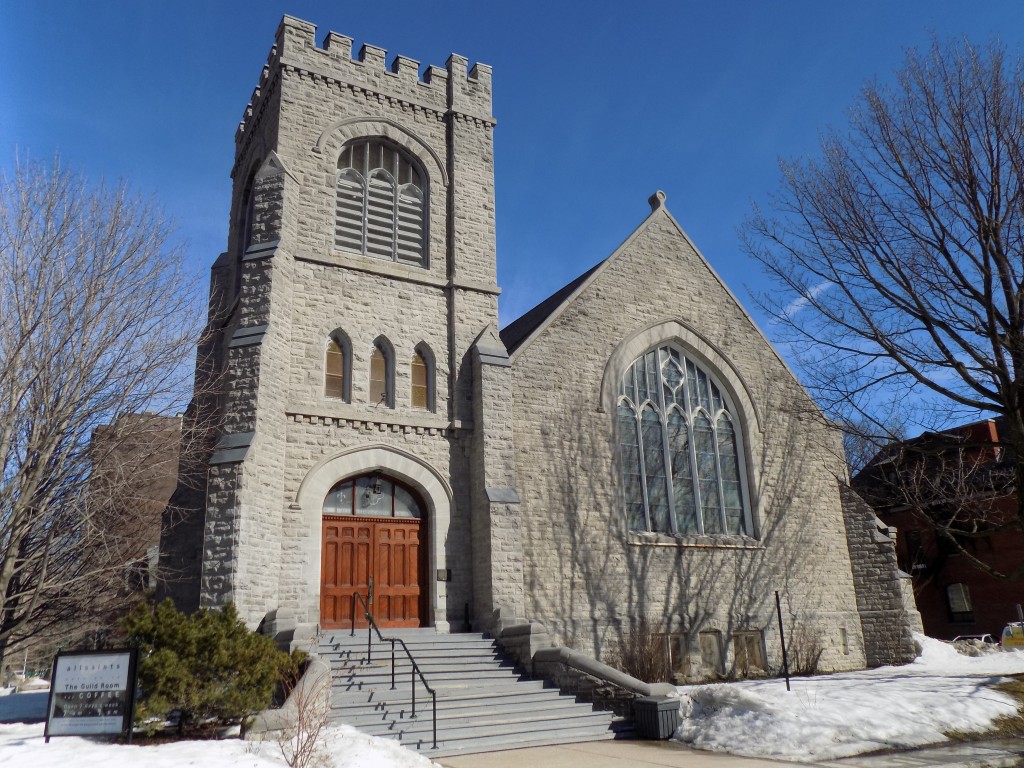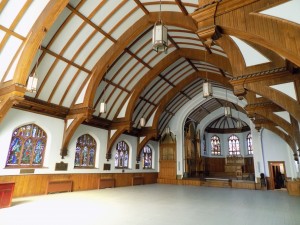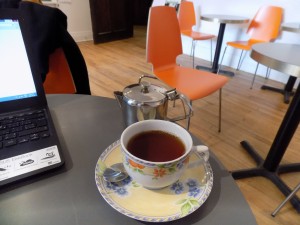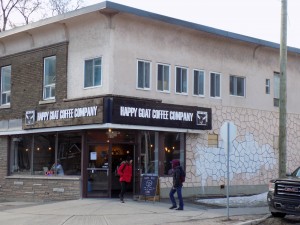Former Ottawa church finds new mission

The former All Saints Anglican (Episcopal) Church at the corner of Laurier Avenue and Chapel Street in Ottawa. Photo: James Morgan
Sandy Hill is a diverse neighborhood near the University of Ottawa Campus and is home to thousands of students. Many foreign countries have their embassies there, and there’s also a mix of housing and people from every income. It’s a neighborhood where things are always changing and in many ways reflecting the big picture of Canadian life.
Religious observance is changing a lot in Canada. According to a Pew Research Center study, the number of Canadians who identified as having no religious belief went from 4% in 1971 to 24% in 2011. A pastor recently told me that average Sunday attendance of 50 people is considered good these days in the denomination he serves in.
In 2014, All Saints Anglican (Episcopal) Church on Laurier Avenue in Sandy Hill closed due to diminished attendance and all the challenges it brings. In 2015, a group of investors purchased the church building with plans to turn it into a space for artists, activists, and the general community to use. The former Altar Guild Room is now a café. Banquet Manager Amy Saccu said they’re attracting artists and not-for-profit groups needing meeting and studio space. The pews have been removed from the former sanctuary and renovations have been made to the lower level of the building, exposing stone that was previously covered with plaster.
The main All Saints building is Gothic revival style architecture and is a listed heritage building. The walls of the former sanctuary, in addition to being lined with beautiful stained glass windows, contain several memorial plaques honoring prominent past parishioners or military victories. Sir Robert Borden, Prime Minister of Canada from 1911 to 1920, attended the church. Another plaque honors Sir George Halsey Perley. He was born in New Hampshire but became a prominent Canadian industrialist and politician in the early 20th Century. Other additions were made to the church over the years, including Bate Hall, the parish hall named after Henry Newell Bate, one of All Saints’ founders.
I sat in the Guild Room and had a cup of tea. The antiquated architecture with a lot of varnished wood, combined with that classic old church smell gave me momentary flashbacks to the Anglican churches of my childhood. Tea and coffee after the service was almost as serious business as the service itself. All that the atmosphere was missing was a mild-mannered priest in a black shirt and clerical collar, and Canada’s pre-1965 flag in the corner next to a portrait of Queen Elizabeth. But then I looked at the modern tables and chairs and noticed a framed liquor license on the wall. Signs of changing times indeed.
The transformation of All Saints is part of a sort of café comeback that’s happening Sandy Hill. The extremely popular T.A.N. Roaster Café at the corner of Wilbrod and Friel Streets closed over a year ago. It re-opened two months ago, completely renovated and under new ownership as the Happy Goat Coffee Company. The place is packed with studying students and it’s often impossible to get a table. Changing beliefs and habits have turned churches into café’s and made cafés into crowded houses of contemporary contemplation.










